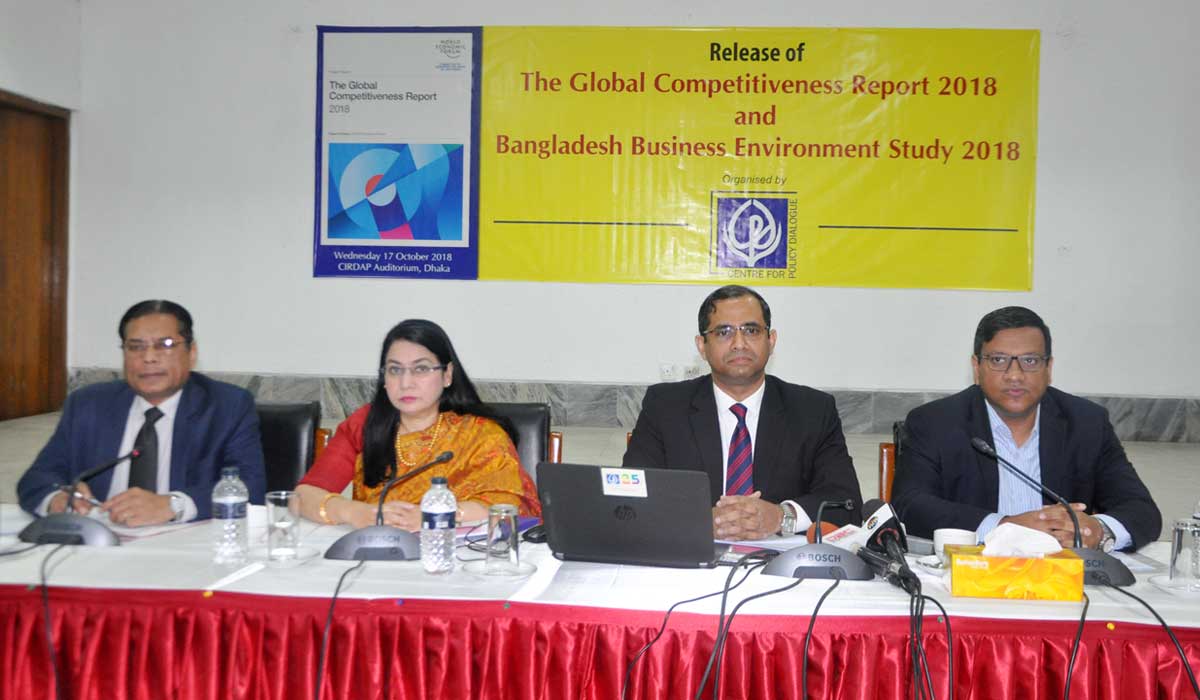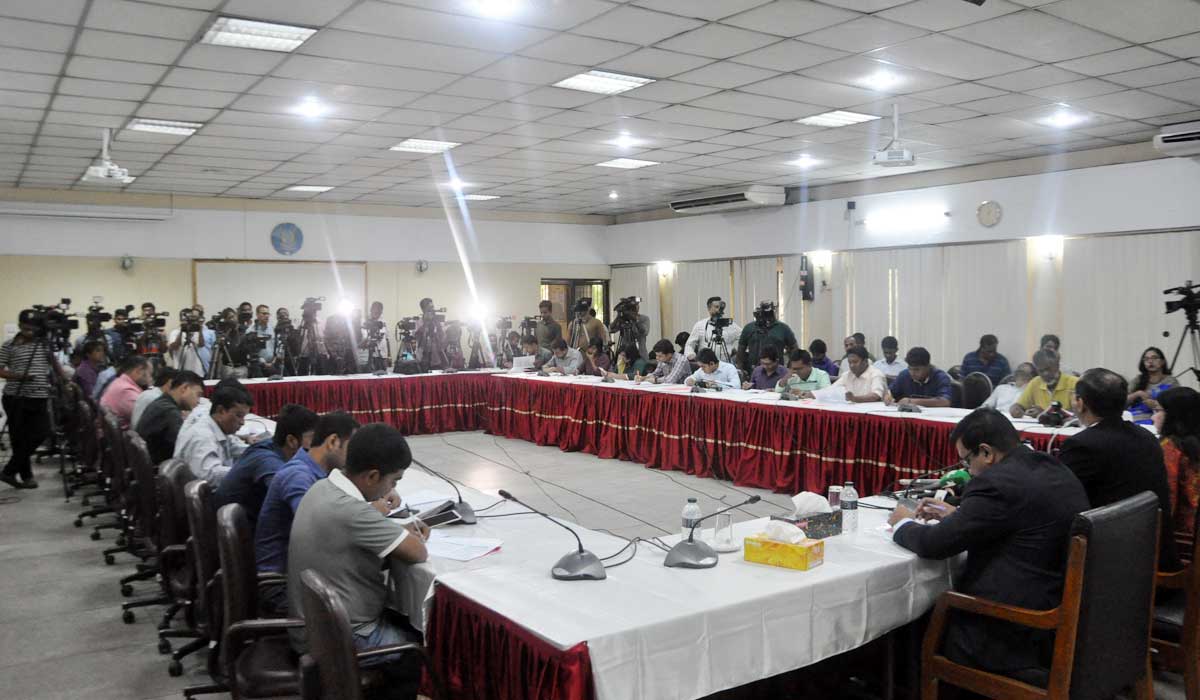
Bangladesh needs to upgrade its technological readiness, innovation capacities and strengthen governance system to be more competitive globally. The most problematic factors for doing business in Bangladesh remained the same since 2010. Alongside these, limited access to finance with high rate of interest, policy instability, high tax rates and complexity of tax regulations have evolved as big concerns for Bangladesh. Adopting technology and innovation and having better governance can better the business environment.
These major findings were revealed by The Global Competitiveness Report 2018 launched by the Centre for Policy Dialogue (CPD) at a press briefing on 17 October 2018 at CIRDAP Auditorium. The event, as always, held with the global release of the Report. The Global Competitiveness Report (GCR) is a cross-country benchmarking analysis of the factors and institutions that determine long-term growth and prosperity of countries. CPD has been partnering with The World Economic Forum (WEF), known as the Davos Forum, in preparing the Bangladesh report since 2001. After the introductory speech by Dr Fahmida Khatun, CPD’s Executive Director, Dr Khondaker Golam Moazzem, Research Director, CPD presented the GCR 2018 to the media along with “Bangladesh Business Environment Study 2018”. Professor Mustafizur Rahman, CPD’s Distinguished Fellow and Mr Towfiqul Islam Khan, CPD’s Senior Research Fellow were also present at the event.
Dr Moazzem explained how the methodology was modified in making this year’s report and the significance of the change. The measures accounted for this report is more Information and Communications Technology (ICT) centric. Under this consideration, Bangladesh has moved down by 1 step in the ranking compared to adjusted ranking of last year. He also stated how Bangladesh has performed poorly in business dynamism and product market amongst other measures in the report.
Professor Mustafizur Rahman, CPD’s Distinguished Fellow, stated that Bangladesh needs to focus on better infrastructure, technological readiness, building skilled labour force, increasing institutional efficiency and strengthening policy to move up the ladder in global competitiveness. He also said that Bangladesh’s economy is very domestic centric, thus, to survive any global instability the focus should be on keeping the domestic business environment healthy.
The briefing was followed by a question and answer session with journalists from print and electronic media.



